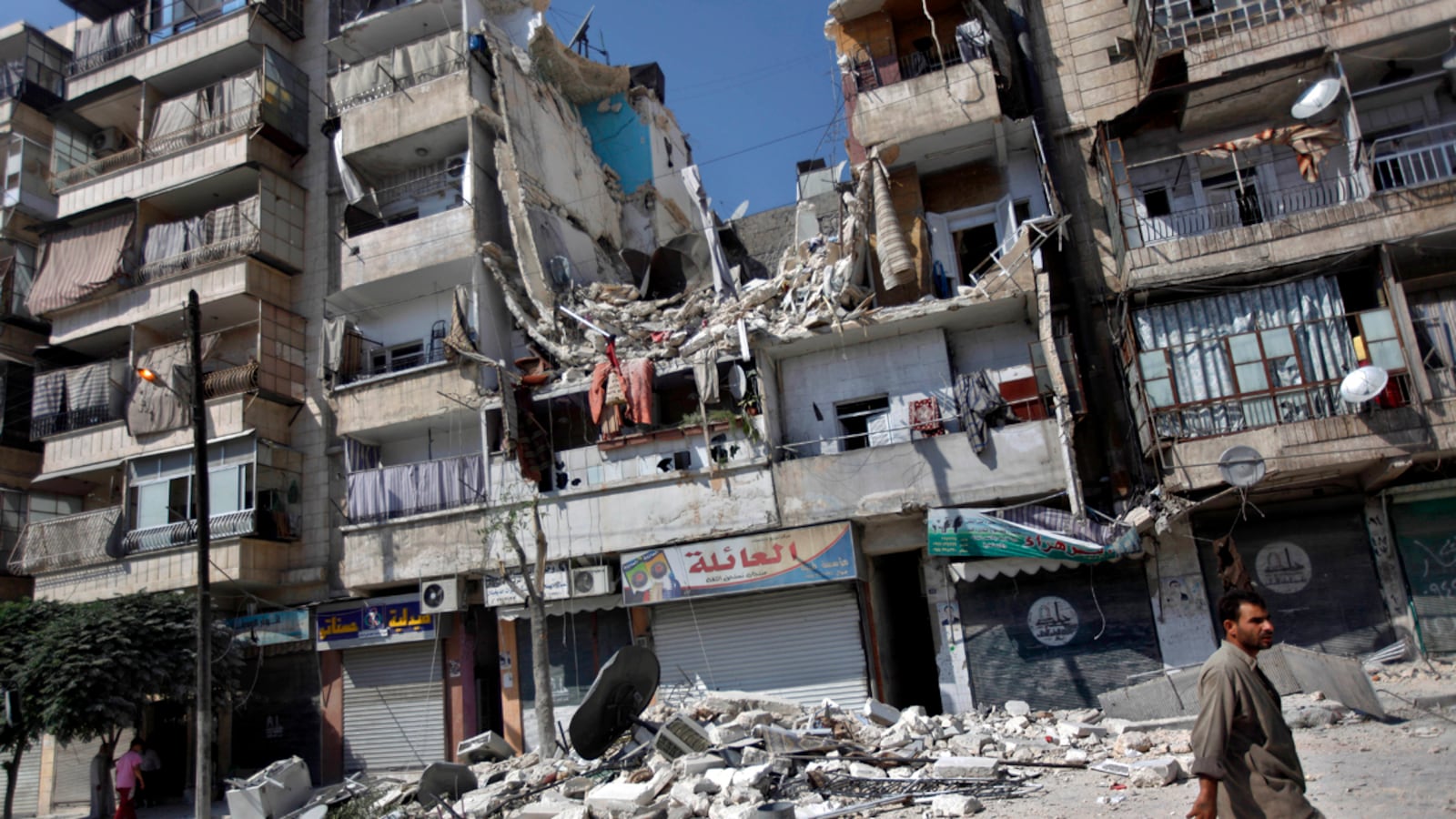In a small house on the outskirts of Aleppo, Abu Sufyan, a Syrian rebel leader, and his lieutenants pore over hand-drawn maps of a military base. They have been scouting the base for a week, and the map's color-coded drawing details the camp's distribution of soldiers, which the rebels pieced together from field surveillance and information provided by officers sympathetic to their cause. On the margins of the creased paper, black squares represent the two tanks the unit will use to shell the base.
The Syrian rebels have made great strides in recent months in their battle against President Bashar al-Assad. They have planned sophisticated attacks, relying on coordination between battalions from different regions. They have wrestled control of territory around the country. Their numbers have been bolstered by an uptick in military defections. But they still face an uphill battle against a regime that bombards them daily with helicopter gunships and fighter jets. And though the rebels believe the imposition of a Western-backed no-fly zone will help them gain the upper hand, there is no guarantee that it will. Indeed, even if the Syrian regime loses control of the skies, it will still hold most of the cards.
Abu Sufyan and his troops are hoping they will not have to rely on foreign intervention. They have captured heavy weaponry, such as tanks and Dushka anti-aircraft guns. They have cobbled together 400 to 500 fighters, and many of these civilians-turned-soldiers have moved beyond grappling with the rudiments of war to planning complex operations. "We are developing our abilities," Abu Sufyan says, as his bullets clank against his camouflage vest. "The Free [Syrian] Army is getting better every day."
For all their progress—rebels control most of the northern province of Aleppo—the Syrian government still has not lost control of any major city. Such is often the case in guerrilla warfare in which rebels forsake capturing territory and instead use constant mobile strikes to wear down their adversary's morale. But in the Syrian civil war, it is the regime that has ceded large swaths of land. It has pulled back its crack troops in the fourth division and Republican Guard from the front lines. It is a strategy Syria has used before. During the 1967 war with Israel, the military's elite forces were stationed around the capital rather than deployed to the front to protect the regime from a possible coup attempt.
In the province of Aleppo, the army has largely ceased ground operations. During the day helicopters and fighter jets drop bombs at random. Some land in fields. Others destroy inhabited houses. At night the military lobs shells and missiles from fortified bases at fighters and the villages that host them. Some see the regime's retreat as a sign of its impending collapse. But in truth, the Syrian government is resting its starting team, content to play defense in what has become a war of attrition.

Abu Sufyan's fighters believe that the strategy plays into their hands. It affords them valuable urban combat experience. Waves of rebel battalions rotate in and out of Aleppo weekly, providing fresh troops to replace exhausted ones on the front lines. But for all the advantages Assad has handed to them, they cannot dislodge his second-string units from the city. Abu Sufyan admits that the rebels are struggling. His solution: "If America bombed Assad's planes so they could not bomb us anymore, we could take Aleppo and then the country," he says.
It is a refrain often heard in Syria. But denying the regime air supremacy is not the elixir the rebels make it out to be. The military will surely lose many of its air bases, such as Minagh and Qwaris in Aleppo; these are islands in a sea of rebel-controlled territory. But if the regime is forced to ground its aircrafts to avoid a Western onslaught in the skies, it will no longer need isolated air fields whose sole purpose is to launch planes used to bomb rebel positions.
Rather, a no-fly zone would expose the fighters’ other weakness—namely their vulnerability to long-range shelling. Throughout the province of Aleppo, the rebels regularly storm bases. Sometimes they penetrate the outer perimeter. But the regime's canons push them back before they can hoist their flag over the liberated barracks. Losing control of the skies will force Assad to choose which regions are strategically important to his regime's survival. His forces will likely fall back on key provinces, such as the capital of Damascus and Latakiyya, where the Alawi sect is dominant. And when they do, Assad's first-string fighters will be well rested for the fourth quarter of a grueling contest with no end in sight.





